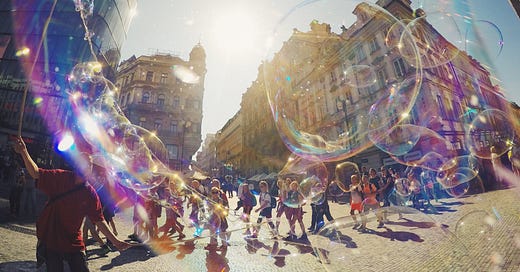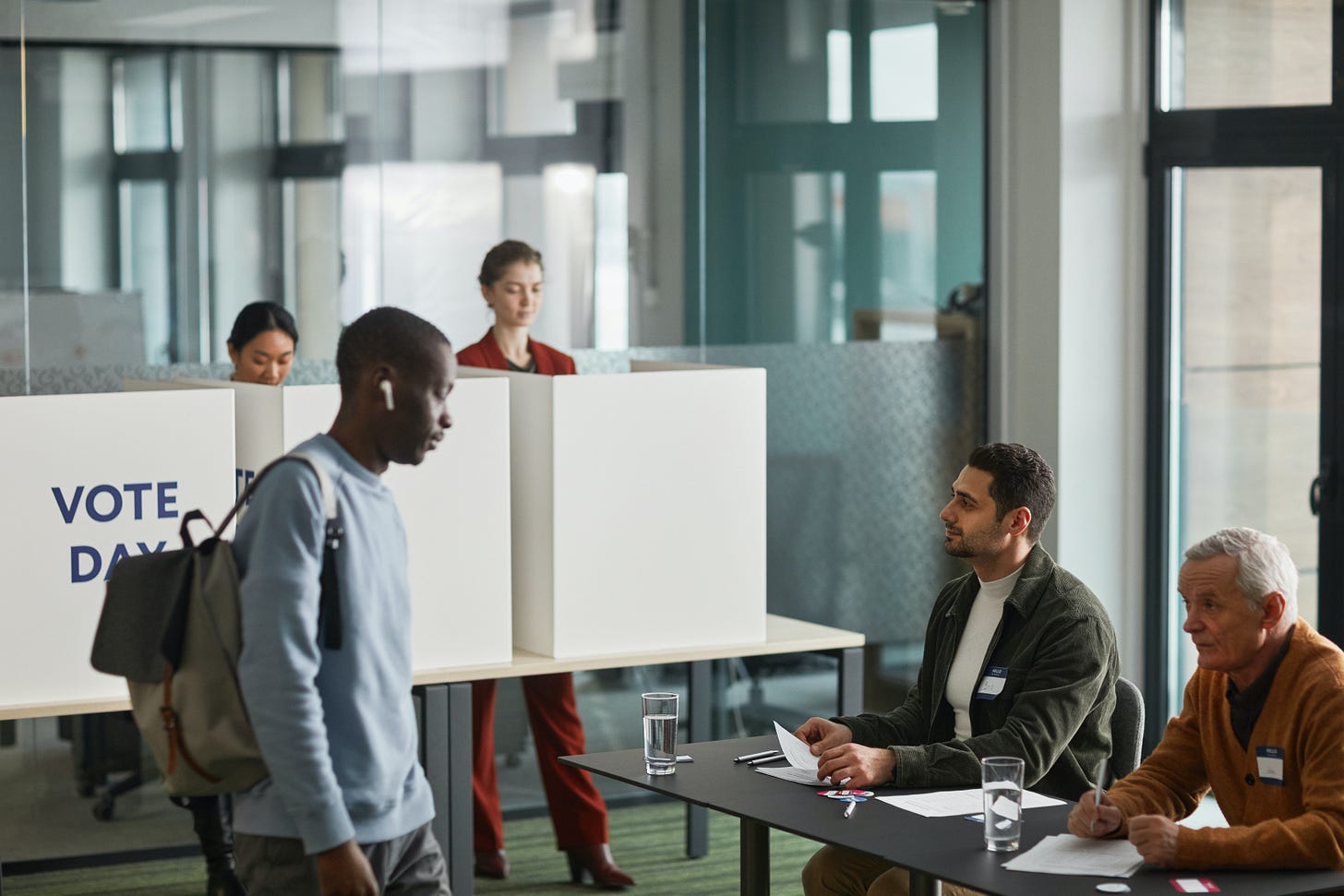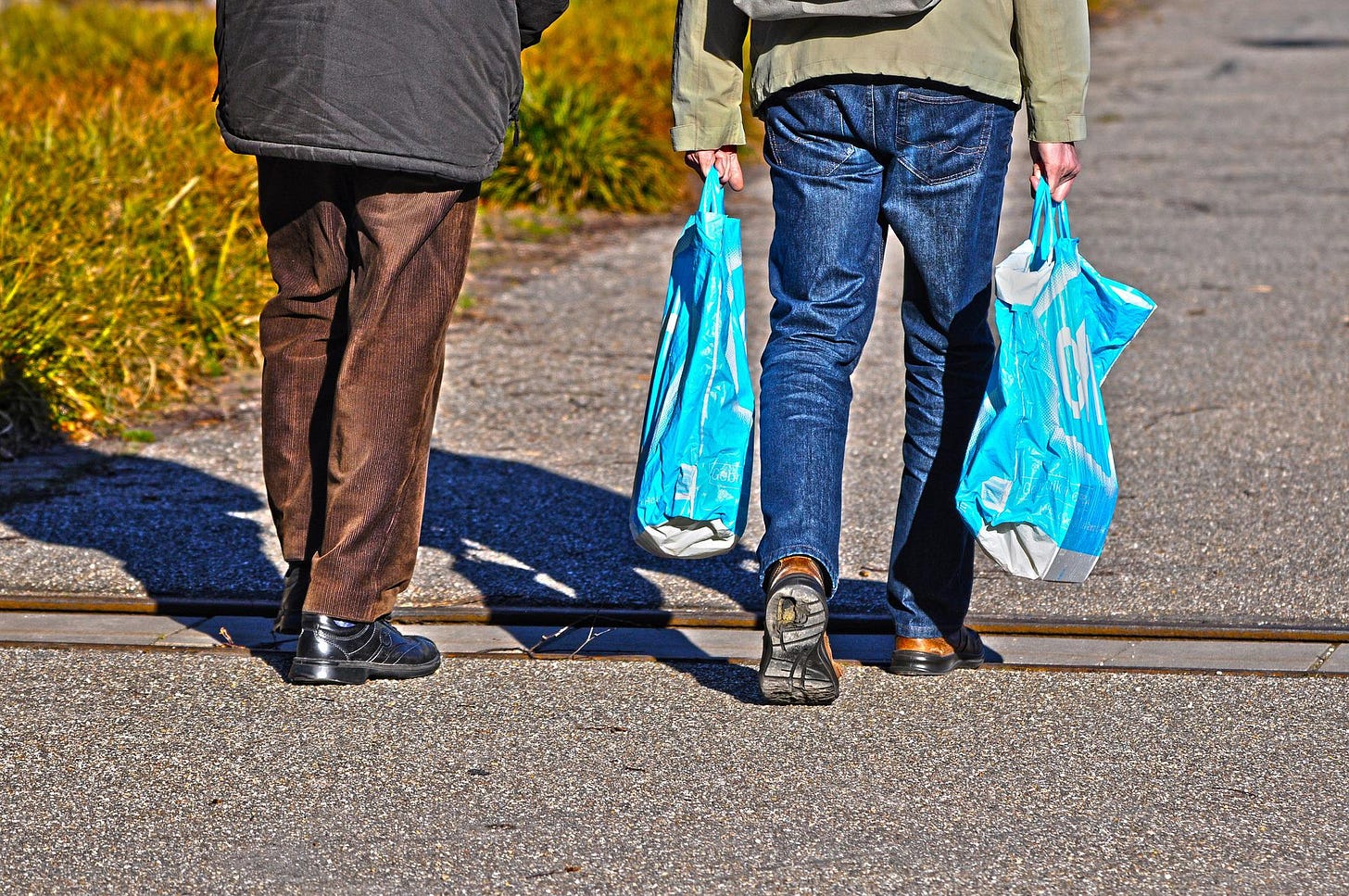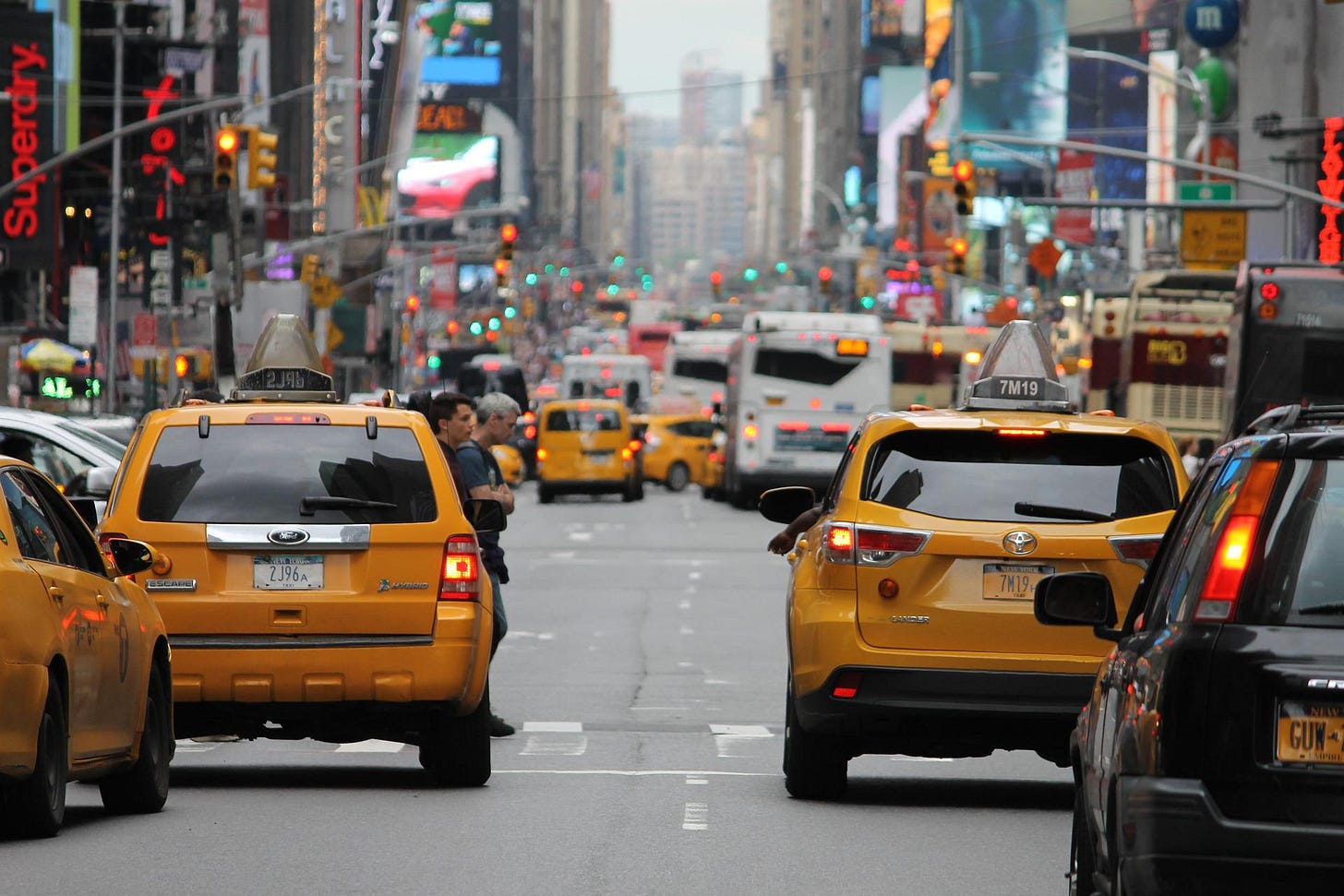A Conversation on Sustainability In and Out of Your Bubble
Part 2: Understanding personal behaviors & social responsibilities while maintaining empathy
One of the great things about writing on Substack is meeting other writers. After Ryan Lark of For the Love of Nature came across Rachel Beth Egenhoefer’s Regenerative Conversations, the two began exchanging ideas and conversations about sustainability, the environment, and what it’s like to live and work in two very different but adjacent spaces (both geographically and thematically). Below is PART TWO of a conversation meant to help create bridges for other people working across disciplines and state lines.
You can read part one HERE.
RBE: It's interesting to hear you talk about the stereotypes of the coal miners in Kentucky. Some of the images that came to my mind immediately was the stereotypical California hippie that doesn’t use any plastic and eats granola and grows their own organic everything. And that can turn a lot of people off, because they think it’s this very hippie lifestyle. In contrast to that, there’s also newer movements I see in California. I think you can credit a company like Tesla for saying OK, we’re going to make an electric car, but instead of making it for the stereotypical hippie Prius drivers, they targeted people with money who wanted fancy sports cards. It’s changing some of the dynamics around electric cars right now. We’re seeing more and more electric cars on the road at least here in California that are being made for different personalities.
I think there’s another misconception that speaks to the question of individual responsibility versus a larger responsibility. I think there's a lot of people who think “I recycle, I'm doing my part” and they don’t need to do more. But we know all of the horrible things about recycling, that only about 8% of our plastic is actually recycled, that many things are sent off to the trash or to be burned. And then you have the other side of this saying “well, what’s the point of recycling then? I’ll just put everything in the trash.” That speaks to the bigger issue of trying to change consumption behavior. But also whose responsibility is it? If it’s not the individuals, whose is it? You pointed a little bit to the different layers of the coal industry, I'm wondering if there's other ways that you think about personal responsibility versus community responsibility versus government responsibility?
RL: Personal responsibility, I'll tackle first. I think that's all about what you're able to do, whether that's physically, financially, whatever. It's so specific to an individual and not just, “Oh, everybody needs to be using metal straws. Everybody needs to be composting,” or whatever. You see on Facebook sometimes—or at least I do—things like “Everyone should stop using grass lawns, and everyone should start gardening their lawns.” But that very easily falls into elitism or ableist opinions because not everyone knows how to garden, not everyone has the time to, and not everyone has the money or physical ability. It's a very slippery slope once you start saying, “Everyone should do this.” Maybe that's great for you, but not everyone can.
I think the government level has the most responsibility for sustainability, but it is the least likely to do it, at least on a realistic timescale. So where the real change needs to happen and where the most responsibility and focus should be is at the community level. It's individuals deciding what they want their communities to do. It's much easier to make a community change policies and rules than it is a government and, sometimes, even personal choices because you can vote a certain way without having to change any certain habits. I think that's a really good way to make a “large scale change” without necessarily having to change anything personally. And that's sort of leading by example, which will, if enough communities do that, lead to governmental change, because governments are going to look at how the people voted, what their communities want to do, and will be influenced or pressured to do that. And by voting for these things in communities, they're going to influence policies, which will force you, whether you want to or not, to make those personal changes. I know you had mentioned to me one time that they are no longer installing gas stoves in San Francisco or the bay area. I love to cook with gas stoves. I probably would never make that choice personally, but if I was forced to, I'd be like, “Okay, well, that's just how it is.” So, yeah. I think the community is really where it needs to be focused and where it's most realistic to focus. Do you agree?
RBE: Yeah. I think a lot of the things you point to like using a metal straw, that's really not really going to make an impact on the bigger picture. If we look at the clothing industry and the amount of pollution that goes into producing and disposing of clothes for instance, or the oil and gas industry, or the larger plastics industry - those have huge effects on us globally. So one person having a metal straw isn’t going to make a dent in that. I do think those kinds of things are important because they cause people to think about deeper issues and they cause people to have conversations.
I appreciate you bringing up the issue of privilege. I think another danger that some of these issues have is that they are often perceived as being for privileged white people, especially when we think about sustainable design. There’s a lot of brands right now like Rothy, Allbirds, Everlane, that are marking themselves as sustainable earth friendly products. But for many people, these are completely out of their price point. I see a similar problem when people just say “oh we can solve climate issues if we all eat organic food”. But who can afford organic food? Who has access to organic food? So then when you start to ask some of those deeper questions, you get into things like living wages, food deserts, education, access, and then you really start to see that these are complex wicked problems that aren’t going to be solved by one thing here or there.
Your comment about voting habits reminds me of the bag bans in California. On the one hand you can look at how it spread - banning single use plastic bags started on city and county levels, and eventually voters put it on the ballot and voted for it to be statewide. Even though we voted for that, we put that law into place, as you said, it doesn’t necessarily change people's habits. So now, in California when you go to the store, if you forget your reusable bags, you just pay 10 cents and technically buy a reusable bag—which is just a thicker plastic so they can call it reusable. There’s different reports out about if these laws really did anything. Yes it cut some plastic use, but also increased plastic use. So that piece about habit is really important. I think what you said about communities is important, the motivation has to come from communal change where you have a group effort and group input. Again, it’s just going to take a lot of different places for change.
RL: Well, honestly, that's kind of how I try to maintain empathy for people, based off of the resources and abilities they have, by focusing on big picture things and not something like whether they’re vegan. The conversation shouldn’t be “Oh, you're using a plastic straw? How dare you!” I almost want to say back, “You think one straw is going to make a difference? Wait until you hear about the BP oil spill.” It's wild and is another slippery slope where you start to put pressure on people that make them feel as if their choices are just as bad as the Prince William Sound oil spill. It's nowhere near, so remembering and keeping a perspective of what the grander decisions are and what is going to make the biggest difference. It’s not me accidentally buying the non-organic conventional version. You should be leading by example, but it's not those bigger issues that you're dealing with on a day-to-day scale.
In Lexington it's easy to say, “Why isn't everyone buying organic or non-GMO?” Well, some people in Eastern Kentucky don't even have cell reception let alone organic food. We have to keep a perspective of access and self-reflection and awareness of people who don't have the same things as you. That’s how I try to maintain empathy for people that don't have the same life as I do, even in the same city, even in the same neighborhood, because everyone's life is different and everyone's abilities are different and knowledge is different. We don’t all have the same lives, and we're not all gonna have the same awarenesses. Having the grace to explain something rather than get defensive or something like that is the best way to make sure you're not overstepping and getting jaded, because it's very easy to get jaded in sustainability, I think. Have you ever felt like you were getting jaded?
RBE: Yes, and I’d emphasize the point that there is no one size fits all answer. I have a lot of family in the Midwest, and they live very different lives. There's certain things about my lifestyle that you could easily argue are maybe less sustainable than some of the things they do, and vice versa. Things that will help improve one community might not help improve a different community. For me, this is really where the environmental justice piece comes into play in trying to invert the power systems to give power to those who are most harmed. I think about your coal example, what if the decisions aren't being made by the monopoly man giving the monopoly money, but what if the decisions were being made by the people who are getting black lung? I think you’re starting to see a little bit of this in some urban cities looking at the effects of environmental racism and they’re saying how can we give more voice to the people living with the most pollution. For me, those are really exciting design questions that get into community design, social design, social impact design, and designing systems which are going to have so much more impact than designing a poster or a package or a product.
RL: Yeah. And I just wanted to add something about perspective that it's not just within the U.S. It's also how we view people in Europe and particularly beyond. I feel like a common scapegoat is overpopulation. As if that’s the reason that we're having these issues when it's like, I don't think a family that lives in Chad who like lives a primarily vegetarian diet have nearly the same impact as someone who lives in New York City who’s vegan or buys organic. To live in a city means to have a bigger impact, compared to most people who live in rural settings. So having that self-awareness of what your impact is compared to other peoples is really important to maintaining a perspective.
RBE: Yeah, thinking beyond us and thinking globally, just opens so much more up to the conversation, so many of our products are made overseas and so much of our trash ends up back overseas. We are polluting the earth, not just in our cities, but also in how our things are made and where our trash is going. And then you combine that with what you're seeing with climate refugees right now. To go back to the issue of politics, it's interesting that some people who don’t want to see immigration in this country are also against doing more to fight climate change. We’re going to see a lot more immigration from climate refugees in coming years. These things are all interconnected.
RL: Yeah. Even in our own country. I don’t know if that's technically a climate refugee if they come from our country, but I would personally consider it. If you live in Florida and you're constantly getting hit by hurricanes and eventually the sea level rises up to where your house is no longer on land, you have to move, whether that's inland or to another state. There was some study that came out a while ago that said Kentucky was one of the best places to live in the United States for climate change, because we're one of the places that is least affected. We’ll mostly just have flooding. The paper predicted that a lot of people are going to be moving to here, which is ironic because we're so conservative and stereotypically against immigration. It'll definitely be interesting to see how people handle climate refugees.
RBE: We've talked about so many different overlapping topics today, I’m curious to hear from you, how do you know when you're doing enough as an individual or as a community?
RL: I don't know if you can know for sure if you're doing enough. I don't know if there ever is, because there's never an end point where you can say, “Alright. That's enough,” and dust off your hands. But I think, going back to this idea of small scale, in the short term, make sure you're taking care of yourself and if you’ve hit your limit. Know when something will be causing yourself mental or emotional harm by continuing to pursue it, whether that's social justice or whatever, and giving yourself grace for when you aren't able to go past your limits or don't want to go past your limits.
Also, keep in mind that it's impossible to not have an impact at all so when you do slip up, it's not the end of the world. Don't think it's ever enough for forever, but remember that you need to set your own limits and take small victories as they come and maybe have soft goals in mind. Then once you reach those, appreciate them and marinade on them. So you're mindful that this is what I wanted, and I got it. This is enough. You have to be realistic with yourself. What about you?
RBE: I agree with that, there is no end point to sustainability. The word sustainability to me is problematic because it implies that we are sustainable and that we can just keep on sustaining ourselves. But we know that with our lifestyles and our current rate of consumption is not at all sustainable; we are depleting our resources far faster than we can replenish them, and destroying far faster than we can repair. I'm interested in how we shift away from sustainable to regenerative. How do we rejuvenate, re-imagine, replenish, re-nurture, how do we make things that will support us and will give us more energy, feed us, make us better, and not just sustain.

But to your questions, on the one hand, we're never doing enough. There never will be enough. There's always going to be more work to do. But, you can't tell yourself I am never enough or I'm not ever doing enough. That kind of goes to the personal and the self care of knowing that you are enough. There's just always more to do.
RL: Yeah. It's definitely a delicate balance of there's never enough, but you don't have to be perfect. So I don't know. It's a very interesting concept of “enough.”
RBE: And with that, perhaps that's enough of our conversation for today.
If you enjoyed this conversation, please subscribe to For the Love of Nature and Regenerative Conversations. Also, leave a comment and join the conversation!







